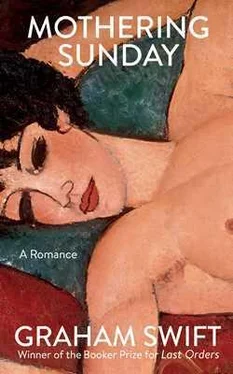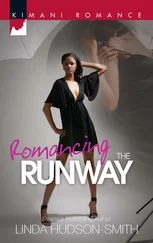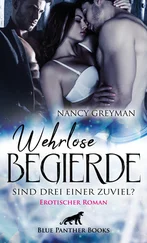And who wouldn’t want to be Jane Fairchild, born on the first of May?
Oh yes — the face would flower again — she was very fortunate to have been born destitute.
‘Are you an orchid, Jane?’ Cook Milly had said, after first looking at her very closely, not long after she’d arrived, as if to establish precisely what sort of specimen she would have to work with.
‘Because my mother was an orchid too.’
Had she really said it? And if so, had she used that word deliberately and knowingly — knowing that she was using the wrong word, not the right one? There was a look of purest artlessness and candour in Cook Milly’s eye. And did it matter if she’d used the wrong word — if the wrong word was a better one? It would have been wrong to point out that she had made a mistake — to expose, at such a moment, Milly’s poor grasp of language and lack of education, while asserting her own accomplishment. That is, if it was a mistake.
And if you were an orphan, then perhaps you might turn into an orchid, as Cinderella turned into a princess.
Had she really said it? Or had she herself misheard it? Or invented this little exchange between herself and Milly? Even then? Surely not. The great truth of life. So that one day she might go on to invent a whole character — a minor but colourful character in her novel Tell Me Again (she actually thought of calling her Milly Cook) — who was given to using misapprehended words. Who said ‘cucumbered’ when she meant ‘encumbered’. And in fact the real and living Cook Milly became more and more, in the course of those ‘maid’s years’ at Beechwood and certainly by the time of that Mothering Sunday, like some cook in a story book, plump and sturdy and red-cheeked, with thick forearms meant for commanding a mixing bowl.
But what had mattered most — and was strangely clear — was that Cook Milly, who was only three years her elder, was implicitly proposing to be her, Jane Fairchild’s, mother — her substitute mother — for the duration. And such was the sincerity that flowed out of Milly that she, the new, disoriented maid, could not help but at once implicitly accept this offer. And never disown it, even though it would emerge that she was a good deal sharper than Cook Milly, so that Milly, who did not have an ounce of cleverness or cunning in her, might be seen as the child of the two of them.
Yet she would always wonder if she had really meant to say ‘orchid’. And how much she might have known, guessed all along, about her and Paul Sheringham.
She would call the character, after all, Molly Cook. And the duration — of her adoption, as it were, by Milly — would be seven years, since within six months of that Mothering Sunday Cook Milly, who had always had her eccentricities with words, went more seriously funny in the head and was taken away to some place (she never knew where, if it wasn’t her own poor mother’s) where women of her station and condition got taken, never to return.
So she was orphaned, you might say, a second time.
And what if orphans really were called orchids? And if the sky was called the ground. And if a tree was called a daffodil. Would it make any difference to the actual nature of things? Or their mystery?
And what if she had not stayed on the bed but had gone down the stairs with him, still naked, her cool feet on the cool chessboard tiles, to take an orchid from the bowl and hold it to his lapel?
‘For me. Since we will never meet again.’
Like some far-fetched scene in a far-fetched story book.
She would become a writer, and because she was a writer, or because it was what had made her become a writer, be constantly beset by the inconstancy of words. A word was not a thing, no. A thing was not a word. But somehow the two — things — became inseparable. Was everything a great fabrication? Words were like an invisible skin, enwrapping the world and giving it reality. Yet you could not say the world would not be there, would not be real if you took away the words. At best it seemed that things might bless the words that distinguished them, and that words might bless everything.
But she would never say these things in interviews.
She would sometimes discuss them — even discuss them in bed — with her husband Donald Campion. She would call him the Great Dissector. And he would call her the Great Vivisector. Now, there was a word. And she would poke her tongue out at him.
‘And what other things do you think are necessary for becoming a writer?’
‘Well, you have to understand that words are only words, just bits of air. .’
The crow’s feet round her eyes positively dancing.
‘Oh, adventure stories, of course, boys’ stories. In spite of the fact that there was still a war going on and all that boys’ stuff had become sheer nonsense. Sheer tommyrot.’
‘And — boys themselves?’
‘You mean — adventures with boys. .?’
She would become a writer. She would live to be ninety-eight. She would live to have seen two world wars and the reigns of four kings and one queen. And very nearly two queens, since she must have been begotten — only just — in the reign of Queen Victoria. ‘Begotten, then forgotten.’
She was ten years old and in an orphanage when a big ship hit an iceberg, making some more orphans. She was twelve years old when a woman threw herself under a king’s horse. She had just turned fifteen when she worked for a while, one summer, in a big house — she had never seen such a palace — and learnt all about nocturnal emissions.
She would live to be almost as old as the century and to know she had probably known and seen — and written — enough. She did not mind, she would cheerfully say, if she did not make it to the year 2000. It was a wonder she had made it this far. Her life had ‘19’ written on it and nineteen was a good age to be. Her face would bloom.
Not that it was really so much — the knowing and seeing — even in seventy, eighty, ninety years. ‘Her maid’s years’, ‘her Oxford years’,‘her London years’,‘her Donald years’.You lived in your own little cranny, didn’t you? All those years at a desk! Even her years of so-called fame, of being shunted around the world, being in places she would never have dreamed of being in — they had all gone by in a blur. And then it was ‘Jane Fairchild at Seventy’, ‘Jane Fairchild at Seventy-five’,‘Jane Fairchild at Eighty’. For heaven’s sake! And batting away the same old questions.
But if you counted what she had seen in her mind’s eye.Well then. . All the places, all the scenes. In the Mind’s Eye : it was the title of her most well-known book. And could she disentangle it, the stuff she’d seen in her mind’s eye, from the actual stuff of her own life? Well of course she bloody well could, she wasn’t a fantasist. And of course she bloody well couldn’t. It was the whole point of being a writer, wasn’t it, to embrace the stuff of life? It was the whole point of life to embrace it.
‘Her Oxford years’! That was a case in point. Yes, she’d gone to Oxford. She could truly say that, but not in the way, of course, some people could say it. Yet she would love to say gaily and freely in interviews, ‘Oh yes, I was at Oxford. .’ ‘When I was at Oxford. .’
Yes, she had gone to Oxford, in October 1924, to work as an assistant in a bookshop, Paxton’s Bookshop in Catchpole Lane. And books, she knew by then, were one of the necessities, the rocks of her life.
It was her first job after being a maid and the first big step in life she had taken for herself. Not a big step, you might think, from maid to shop girl, but it had required some initiative and daring, even some writerly skill, in answering the advert. And it had required Mr Niven’s cooperation in writing her a reference. Perhaps he had said that she’d made more use of his own library than he had.
Читать дальше












